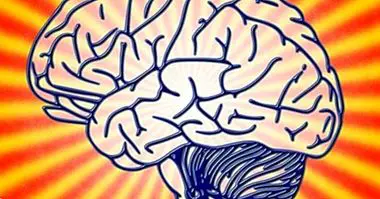The theory of the motivations of David McClelland
The theory of the motivations of David McClelland It is one of the most well-known psychological models of human needs, especially in the business and organizational spheres.
In this article, we will analyze the theory of McClelland's three needs and the most significant antecedents for its emergence. We will focus mainly on detailing your contributions on the three types of motivation: membership, achievement and power .
- Maybe you're interested: "Humanist Psychology: history, theory and basic principles"
Introduction to the psychology of motivation
In the year 1943 the American psychologist Abraham Maslow published in the magazine Psychological Review an article in which he presented his hierarchical theory of needs. This model, popularly known as "the Maslow pyramid", was a fundamental milestone in the evolution of the psychology of motivation.
Maslow defined five categories of needs; from more to less basic, it is about the physiological needs (nutrition, sleep, sex, etc.), security (housing, employment, health), love and belonging (friendship, sexual intimacy), recognition (self-confidence, professional success) and self-realization (creativity, spontaneity, morality).
In the years that followed the popularization of Maslow's model, multiple similar approaches appeared, such as McClelland's theory of three needs, which we will describe next. Many of these models are framed in humanistic psychology, which claimed the tendency to personal growth of the human beings.
The motivation has been a subject little studied by the behaviorism and the orientations that followed it, since they focus on the observable behavior; From this perspective, it is more usual to conceptualize motivation as the incentive value that is given to a reinforcement, although sometimes ambiguous concepts such as the "impulse" are included.
- Maybe you're interested: "The personality theory of Abraham Maslow"
The theory of the three needs of McClelland
In the early sixties, David McClelland described in his book The Achieving Society ("The Realizing Society") his theory of the three needs. It defines three types of motivations shared by all people, regardless of their culture, gender and any other variable, although these may influence the prevalence of one or other needs.
According to this author, motivations should be understood as unconscious processes, similar to psychoanalytic approaches. That is why McClelland recommends the use of the thematic apperception test by Henry A. Murray , which belongs to the category of psychological evaluation projective tests, in order to assess the needs.
1. Need for affiliation
People with high affiliation motivation have strong desires to belong to social groups. They also seek to please others, so they tend to accept the opinions and preferences of the rest. They prefer collaboration to competition , and they are bothered by situations that involve risks and lack of certainty.
According to McClelland these people tend to be better as employees than as leaders because of their greater difficulty in giving orders or in prioritizing organizational objectives. However, it should be mentioned that they have been described two types of leader: the task, associated with high productivity, and the socio-emotional , specialist in maintaining group motivation.
The importance of the need for affiliation had previously been highlighted by Henry Murray, creator of the thematic apperception test. The same can be said of the needs for achievement and power, which served as the basis for McClelland's proposal.
- Maybe you're interested: "Types of motivation: the 8 motivational sources"
2. Need for achievement
Those who score high in need of achievement feel intense impulses to reach goals that involve a high level of challenge , and do not oppose taking risks in order to achieve it, provided it is calculated. In general they prefer to work alone than in the company of other people and they like to receive feedback on the tasks they perform.
McClelland and other authors affirm that the need for achievement is influenced by personal abilities to set goals, by the presence of an internal locus of control (perception of self-responsibility over life events) and by the promotion of independence by parents during childhood.
3. Need for power
Unlike the most affiliates, those in which the motivation of power predominates enjoy competing with others - for that reason to win, of course. Those who have a high need for power value social recognition very much and They seek to control other people and influence their behavior , often for selfish reasons.
McClelland distinguishes two types of need for power: that of socialized power and that of personal power. People who are closer to the first type tend to be more concerned about others, while those who have a high personal power motivation want above all to gain power for their own benefit.
People with a high motivation for power who do not simultaneously have a high level of personal responsibility have a greater probability of carrying out psychopathological externalizing behaviors , as physical aggressions and excessive consumption of substances.
Bibliographic references:
- Maslow, A. H. (1943). A theory of human motivation. Psychological Review, 50 (4): pp. 370-396.
- McClelland, D. C. (1961). The Achieving Society. Princeton, New Jersey: Van Nostrand.



















